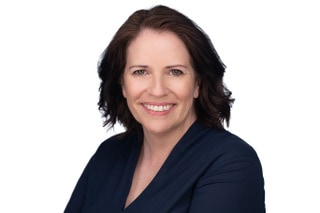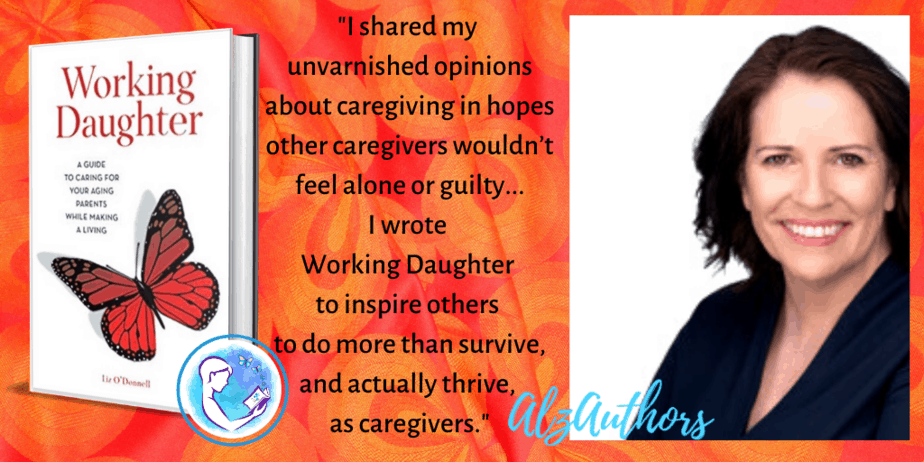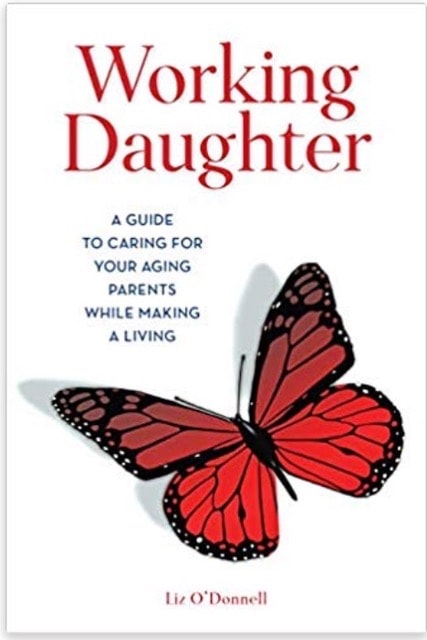On July 1, 2014, both of my parents were diagnosed with terminal illnesses. My father had been acting forgetful and confused and he had been in the hospital for ten days while they evaluated him. That day, I had a meeting with his care team and they told me he had Alzheimer’s and dementia, that he could no longer live at home, and that I had a week to place him in a memory care facility. I left the meeting – reeling – and before I even exited the hospital parking lot, my cell phone rang. It was a doctor at another nearby hospital. A few days earlier my mother had been sent there with stomach pains. That doctor told me mother had ovarian cancer and asked me if I could come right away, so we could tell her the news together.
For the next few months, my life was wild. I moved my parents a total of 4 times. I found wills and cemetery plots and bank accounts and hired an eldercare attorney. I sorted through two terminal medical diagnosis and what they meant. I planned and held a funeral for my mother. Then I dealt with Social Security and pensions and insurance policies. And that was just the tactical; never mind the emotional part. And through it all, I had to go to work. I had to earn. I wanted to quit my job because balancing work and care was so, so hard. Plus, I was still a mother to two kids age 12 and 10. I was still supposed to be a wife. I thought for sure I would lose my job, my marriage and my sanity.
But I didn’t! So after my mother died, I vowed to write a book; to share everything I had learned through my experience because I didn’t want any other woman to ever feel as unprepared and alone as I felt. I started writing and found an agent, but then I had to put the book on hold; my father’s dementia had advanced. And once again I was fighting to help him and be his advocate, and I was wondering if I would lose my job as a result.
After he died, I finished the book. I wrote it in the hopes that I could turn my family’s crisis into another family’s road map and pass along all of the information I gathered and the lessons I learned caring for my parents. Most importantly, I wrote the book so that some other woman wouldn’t someday find herself wondering if she should quit her job, or worse, not be present with her children, because she saw no other option. I shared my unvarnished opinions about caregiving in hopes other caregivers wouldn’t feel alone or guilty about their approach to caring. And finally, I wrote Working Daughter to inspire others to do more than survive, and actually thrive, as caregivers.

Liz is the founder of Working Daughter, a community for women balancing eldercare, career, and more. An award-winning writer, she recently published her second book, Working Daughter: A Guide To Caring For your Aging Parents While Making A Living, which Library Journal named one of the Best Books of 2019.
A former family caregiver, she is a recognized expert on working while caregiving and has written on the topic for many outlets including The Atlantic, Fast Company, Forbes, TIME, WBUR and PBS’ Next Avenue and has delivered keynotes on the topic to many audiences including Harvard University, MIT, the Marketing to Moms Conference, and the Women Leading Government Conference.
Her first book, Mogul, Mom & Maid: The Balancing Act of the Modern Woman, which looks at the impact of women’s personal lives on their careers, was an Amazon bestseller.
A long-time marketing executive and working mother, she is also active in her community and committed to supporting other women. Liz cofounded SheStarts, an organization for women entrepreneurs, and Women In Democracy-Dedham, a non-partisan group that seeks to engage more women in local politics.
https://www.linkedin.com/in/liz3point0/
https://www.facebook.com/workingdaughter/?ref=bookmarks
https://twitter.com/WDtweeting
https://www.instagram.com/workingdaughter/




One Response
This sounds like a fabulous book. I was a “working daughter,” too, as well as an Alzheimer’s wife, but not for both parents at once. Kudos on the book and on surviving with a semblance of sanity.